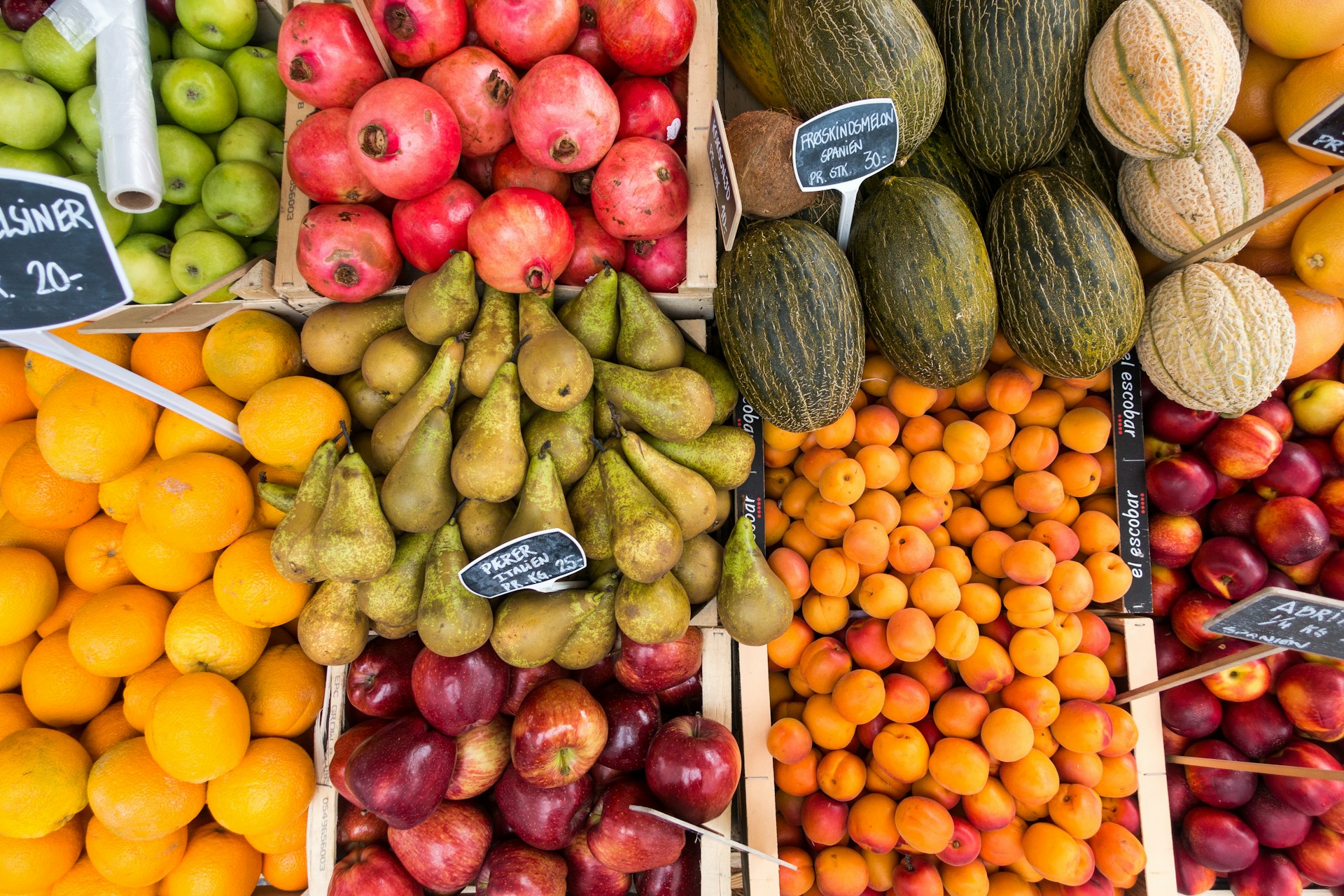In the realm of international food supply, fruit and vegetable producers bear the dual responsibility of ensuring both the quality of their goods and compliance with global agricultural standards.
This burden is not for the faint-hearted.
Multifarious regulations and complex export protocols can indeed feel like navigating murky waters.
Yet the path to global market success dictates adherence to these stringent standards.
This piece will delve into the techniques producers can employ to ease the compliance process.
By understanding these methodologies, businesses can strengthen their approaches to packing and exporting produce to international markets, in alignment with all necessary regulations.
Compliance Strategies For International Produce Packing
1. Follow International Food Safety Standards
The importance of adhering to international food safety standards cannot be overstated when it comes to exporting and packaging produce.
International trade in food paves way for the opportunity to experience a variety of fruits and vegetables from different areas of the globe.
However, for these exchanges to happen smoothly, it is critical that all players in the supply chain abide by the internationally recognized food safety norms.
Producing safe food is not just a legal obligation or commercial priority but also an ethical imperative.
Compliance with international food safety standards ensures high-quality produce, consumers’ trust, and expansion into new markets.
The Food and Agriculture Organization (FAO) and the World Health Organization (WHO) have set certain guidelines known as the Codex Alimentarius, or the Food Code.
It is the most comprehensive and universally adopted food safety standards in the world, touching everything from packaging to storage, transportation, and handling.
Following these may seem complex, but they are designed to ensure that the foods we consume are safe and of high quality.
International standards like Hazard Analysis & Critical Control Points (HACCP) play a significant role in identifying where hazards could occur in the food production process and putting stringent actions in place to prevent these issues.
Adopting the HACCP system can show potential customers that a business prioritizes the safety of its food.
For produce, specifically, these guidelines often encompass things like the use of pesticides and fertilizers, harvesting, storage conditions, and cross-contamination issues.
Companies that invest time and resources in complying with international food safety standards will find it easier to enter new markets.
This is because the standards serve as a guarantee of quality and safety – creating trust with their buyers.
This not only tends to foster customer loyalty, but it also has the potential to heighten the brand’s reputation and increase its recognition.
Non-compliance, on the other hand, can lead to closures, recalls, or even prosecution which can be devastating for a business, both financially and reputationally.
A key component of complying with these standards is regular testing of the produce and keeping audit records to display due diligence and conformance with the safety measures outlined.
The ultimate goal is ensuring the safety and well-being of the consumers and establishing a trustworthy relationship with them.
2. Implement Labeling and Packaging Regulations
Compliance with labeling and packaging regulations is a critical aspect of successful international produce packing.
In order to meet the standards set by different countries, it is essential to understand the specific labeling and packaging requirements of each market destination.
Attention to detail and consistency in compliance procedures ensure that companies avoid regulatory penalties and maintain a strong market presence.
The product’s country of origin, nutritional content, ingredients, and packing and expiration dates are some of the standard labeling requirements.
Certain regions may also require explicit labels disclosing allergens or genetically modified organisms (GMOs).
It is mandatory to translate these labels into the official language of the destination country.
Produce packaging must align with environmental standards, which often include regulations on material selection, recyclability, and waste reduction.
Companies must further ensure the physical safety and suitability of their packaging.
Produce destined for overseas markets must be packaged sturdily to withstand the rigors of transportation and maintain product quality.
Additionally, packaging designs should be pleasing and representative of the product, thus contributing to effective marketing.
It is essential to continually update knowledge about each country’s regulations due to changes in their domestic policies.
Utilizing legal and compliance experts or consultancy services can streamline this process and ensure accurate interpretation of the regulations.
Strict adherence to these regulations does not only meet the law – it also builds credibility and trust with consumers and stakeholders.
A good understanding of these regulations can help businesses achieve competitive advantage, efficient integration into target markets, and ultimately, profitable foreign market operations.
Correct implementation of these labeling and packaging regulations can result in a successful, compliant company with high standards for product quality and safety.
3. Stick to Ethical Labor Practices
In a globalized world, it becomes increasingly important for produce packing companies to stick to ethical labor practices.
This includes ensuring fair wages, decent working conditions, proper training, and respect for labor laws and regulations in every country they operate in.
Adherence to these practices not only protects the rights of the workers but also boosts a company’s reputation in the marketplace.
Companies failing to implement these practices can face legal consequences and the negative backlash from consumers and stakeholders.
Sticking to ethical labor practices demonstrates a commitment to responsible business operations that respects humanity and law.
Consumer awareness and conscience about the origins and ethics of the products they consume have markedly increased.
Therefore, firms that do not abide by ethical labor standards risk losing a significant portion of their customer base and potentially damaging their brand image.
Ethical labor practices mitigate the risk of labor exploitation, which is a grave concern in the produce packing industry in many developing nations.
Exploitation can take many forms – from unfair wages and poor working conditions to child labor and inhuman treatment of workers.
Sadly, these issues are often exacerbated by the pressure on businesses to lower costs and maximize profits.
But by sticking to ethical labor practices, businesses can contribute the overall livelihoods of their employees and ensuring their well-being which eventually leads to better workplace morale, productivity and employee retention.
International labor laws and standards exist to protect workers, and businesses are expected to comply with these.
A well-implemented ethical labor practice within a firm acts as a deterrent against labor rights violations and fosters a culture of respect and fairness.
It is crucial for businesses to continually review and update their labor practices in line with changes in international, national and local labor laws.
While it is a complex and ongoing endeavor, sticking to ethical labor practices signals a company’s commitment to doing business responsibly and sustainably.
4. Abide by Environment Sustainability Rules
The international produce packing industry has a pivotal role to play in driving environmental sustainability.
Environmental sustainability rules encompass a broad set of guidelines and principles aimed at preserving the health of the global ecology.
Given the indispensable role of produce in human survival, strict adherence to these regulations is not an option, but an absolute necessity for any credible business engaged in international produce packing.
International produce packers must take cognizance of the need to minimize waste, facilitate recycling and the efficient utilization of resources.
Energy conservation measures such as the use of renewable energy sources or investing in energy-efficient equipment can have a profound impact.
Environmental sustainability is not about short-term gains, but the long-term survival and prosperity of the entire produce packing ecosystem.
Produce packers need to appreciate the importance of reducing their carbon footprint and greenhouse gas emissions.
These initiatives not only contribute positively to the environment, but also help packers to earn the trust and loyalty of increasingly environmentally-conscious consumers.
Companies also need to be aware of the regulations related to the use of organically-grown or GMO-free produce.
Strategies for water conservation, waste management, reduction of air and noise pollution, and the protection of biodiversity are equally important aspects of environmental sustainability.
Adopting these principles is a challenging, but critical task in the quest to achieve sustainability in the international produce packing industry.
It’s important for compliance officers and top leadership to consistently promote the adoption of environmentally friendly practices throughout their organization.
Regular audits should be used to monitor compliance and inform the refinement of environmental sustainability strategies.
Produce packers need to be familiar with the consequences of non-compliance, which might result in harsh penalties, tarnished reputations, and in severe cases, an inability to operate in certain regions.
In the final analysis, abiding by environmental sustainability rules should be seen not as a burdensome mandate, but synonymously with the successful long-term survival of any international produce packing operation.
5. Regular Compliance and Quality Audits
Ensuring regular compliance and quality audits is paramount in maintaining necessities of international produce packing.
These audits, often conducted by a third-party organization, monitor adherence to international food safety standards and compliance regulations.
The regularity of these audits depends on factors including the size of the operation, the complexity of processes, and the level of risk posed by the products being packed.
It’s essential to understand that audits provide an opportunity for continuous improvement within the operation, identifying and addressing gaps in compliance before they become significant issues.
Through these audits, areas of non-compliance can be flagged and corrective plans can be immediately formulated and implemented.
Steps are then taken to monitor the effectiveness of these corrective measures within the framework of the audit process.
Quality audits complement the compliance audit strategy by assessing the standard of the produce being packed.
This may include analyzing the quality of the raw products, the packing materials used, the condition of the packing equipment, and the adherence to the right packing processes.
It’s important to remember that the purpose of quality audits is not just about finding flaws, but about optimizing operations to reduce waste and improve the overall product marketability.
Both compliance and quality audits should extend beyond the packing operations to ensure the full supply chain is operating within accepted international standards.
That is why audits should cover everything from raw material sourcing to transportation logistics.
The documentation of these audits should be clear, precise, and useable to stand in the face of any potential regulatory scrutiny.
Staff training and buy-in can also be vital in the successful implementation of an audit strategy.
When teams understand the importance of these audits in maintaining company reputation, ensuring the safety of the product, and satisfying international standards, they are more likely to commit to the compliance process.
Technology and digitisation can greatly aid in the audit process, offering streamlined documentation and instant visibility of compliance and quality issues.
In essence, regular audits ensure a company’s packing operations do not just meet, but exceed, international standards and continuously improve in terms of safety, quality, and efficiency.
6. Observe Cross-Border Trade Agreements
The global world of produce packing often involves dealings with multiple countries. Each of these nations has its own sets of laws and restrictions for imported and exported goods. Observing all relevant cross-border trade agreements forms a vital part of maintaining compliance in this industry. This goes beyond merely respecting those guidelines, it’s about understanding their impact and their relevance to your day-to-day operations.
Businesses must ensure that they are working in line with these agreements, as failure to do so can result into penalties or even a ban on exporting products to a specific country. Moreover, these agreements might even have implications on the packaging and labelling requirements of your products – necessitating your adherence to other regulations in the process.
You have to keep abreast with the constant changes in international trade policies. This is critical, considering these policies can affect your procurement, manufacturing, and the ultimate cost of goods.
Paying attention to the varying limitations imposed by each nation in regards to specific produce is crucial. This includes understanding quarantine and inspection protocols, as well as restrictions on certain chemicals or treatments.
One of the biggest challenges for companies involved in the produce packing industry comes from the actual nuances of these trading agreements. Seemingly insignificant details can sometimes make a significant difference, forcing companies to adopt specific strategies to comply.
It’s crucial for these businesses to employ expert advisors who are familiar with the intricacies of international trade laws. These experts can provide key insights and guidance regarding various cross-border compliance issues, and can potentially save businesses from costly legal disputes in the long run.
Understanding the laws and regulations of each country and how these affect the packaging and delivery of your product is paramount to compliance and successful business operations.
Produce packing businesses must not only understand the obligations outlined in these documents, but also the intent behind them. Approaching these trade agreements with a holistic comprehension can help to prevent misinterpretations that could possibly lead to non-compliance.
Building positive relationships with trading partners and regulatory bodies can also aid in navigating through complex international trade agreements. Transparency and collaboration can contribute towards mutual understanding and smoother cross-border operations.
Importantly, businesses must remain vigilant in their understanding and implementation of these trade agreements. Compliance is not something to be achieved and then forgotten, rather it is an ongoing commitment that requires continual assessment and revision when necessary.
Knowing how to strategically navigate these cross-border agreements is not solely about avoiding penalties. It also serves as a vital step in securing a competitive advantage in the global marketplace. These trade agreements can sometimes open up new business opportunities if they are understood and utilized effectively.
In conclusion, observing cross-border trade agreements is a pivotal aspect of the compliance strategy for any international produce packing business. Understanding, respecting, and strategically navigating these agreements can help in avoiding penalties, fostering positive relationships with trading partners, as well as unlocking new business opportunities in the global marketplace.
7. Safeguarding Intellectual Property Rights
As a crucial component of global business practices, intellectual property rights (IPR) play a significant role in maintaining a competitive edge.
In the complex world of international produce packing, it is vital to safeguard these rights to protect your brand, logo, innovations, and unique packaging designs.
Every successful business understands the importance of obtaining patents, trademarks, or copyrights for their products.
Protecting your intellectual property is not just about defending your tangible assets; it’s about supporting your brand’s identity, market share, and growth opportunities.
Therefore, it is crucial to be proactive in creating and implementing strategies that ensure the thorough protection of your intellectual property rights.
In light of this, an in-depth understanding of international IP laws and regulations is vital.
Engaging with legal experts who specialize in the international intellectual property rights landscape can provide you with essential guidance.
Choosing to work with these professionals can help avoid costly mistakes and potential legal disputes in the future.
Besides, it’s important to respect other businesses’ intellectual property rights.
Accidental infringement can lead to expensive litigation or harm to your company’s reputation.
Equally important is the secure storage of intellectual property information. Keeping track of your patents, trademarks, and copyrights documentation in a safe and secure manner is essential.
Implementing state-of-the-art technology and practices can secure your business from potential intellectual property rights theft or misuse.
Additionally, employee education around the importance of intellectual property, its rights, and how to respect those rights can largely reduce the chance of unintentional infringements.
In a world where ideas are often more valuable than tangible assets, ensuring and enforcing intellectual property rights have never been more critical in the international produce packing industry.
In summary, safeguarding your intellectual property rights, understanding and respecting the legal landscape, engaging with legal experts, secure storage of intellectual property documents, and employee education around intellectual property rights are key strategies to ensure compliance in the international produce packing industry.
The Bottom Line
Ensuring sustained success in the global foodstuff industry necessitates strict adherence to various key principles.
High among these are the adherence to international food safety standards and localized packaging regulations.
Equally important is maintaining a firm commitment to ethical labor practices, which can go a long way in building a positive brand image.
Environmental sustainability is a growing concern that businesses can no longer afford to ignore.
Thus, compliance with eco-conscious rules is expected not just by the authorities, but by an increasingly environmentally-conscious customer base as well.
Meanwhile, compliance audits serve as an essential tool for maintaining the quality of output and monitoring adherence to all the required regulations.
Being aware of and respecting cross-border trade agreements is critical in avoiding unnecessary legal disputes and fostering good relationships with international partners.
Lastly, protecting intellectual property rights is key in fostering innovation and maintaining a competitive edge in a quickly-evolving industry.
Hence, a comprehensive, multi-faceted approach is what companies need to thrive in today’s global foodstuff market.




